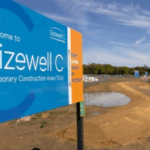Homebase is set to make a comeback in a streamlined format, following the DIY chain’s collapse last month. Its new owner, CDS, has confirmed plans to reopen 70 former Homebase locations across the UK, rebranded under the Range Superstores banner. The stores will retain the Homebase name in their garden centre sections, with some also incorporating Homebase-branded kitchen departments.
The first three converted stores will open on 17 January in Pollokshaws (Glasgow), Christchurch (Bournemouth), and Kings Heath (Birmingham), with plans to launch an additional 10 stores per month starting in February. CDS, founded by former market trader Chris Dawson, operates around 220 retail sites in the UK and Ireland under the Range and Wilko brands.
While the physical stores transition, CDS is also taking control of Homebase’s online presence, set for a shift in early 2025. Meanwhile, Teneo, the administrator for the defunct Homebase chain, is seeking buyers for the 49 locations not included in the deal. These remaining stores will continue to operate under the Homebase name until new ownership is confirmed.
Alex Simpkin, CEO of CDS, expressed a commitment to blending Homebase’s legacy with the expanded product range and value that customers expect from the Range Superstores. “We’re fully committed to retaining the best of Homebase’s heritage while introducing a broader product range,” Simpkin said.
This acquisition follows CDS’s purchase of the Wilko brand in September 2023, after the discount homeware retailer entered administration. CDS has already opened seven Wilko stores, primarily in high street locations and shopping centres, with plans to expand further next year. However, its goal of opening 40 new Wilko outlets this year has been scaled back due to stiff competition in the discount retail sector and challenges in securing suitable premises.
Industry observers suggest that CDS’s acquisitions of both Wilko and Homebase could position the company for a stock market debut, a move it considered several years ago but ultimately abandoned. Simpkin believes the company is now poised for significant growth, saying, “Our substantial investments in infrastructure have prepared us for the next phase of growth.”
Looking ahead, CDS is financially positioned to expand into hundreds of new sites, testing a variety of store formats and locations beyond the traditional retail parks typically associated with the Range brand.









